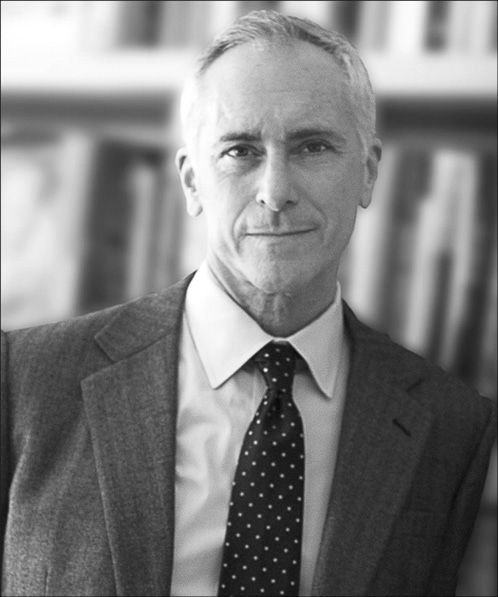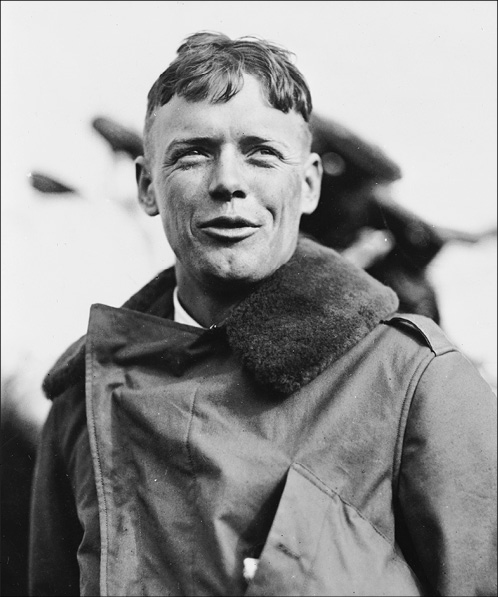8 A. SCOTT BERG on Charles Lindbergh
“He was human quarry all his life.”
BOOK DISCUSSED:
Lindbergh (G. P. Putnam’s Sons, 1998)
Most of the biographies in this series involve government officials or those who influenced government policy. Charles Lindbergh (1902–1974) is in a different category, but his impact on history, and on the United States and Europe, was truly unique.
In May 1927, a little-known twenty-five-year-old airmail pilot named Charles Lindbergh made history when, responding to a $25,000 prize challenge, he became the first person to fly solo across the Atlantic, piloting his plane, the Spirit of St. Louis, from New York to Paris in a thirty-three-and-a-half-hour flight. The feat made him an instant celebrity around the world—perhaps the most famous human in world history up to that point—and, as award-winning biographer A. Scott Berg explains, it ushered in the modern era of media superstardom.
Lindbergh spent the rest of his life uncomfortably in the glare of public attention, by turns a figure of admiration, sympathy, and controversy. He and his wife, the writer Anne Morrow Lindbergh, found themselves at the center of a media frenzy in 1932, when their baby son was kidnapped from the family home in New Jersey and killed. Bruno Richard Hauptmann, a German immigrant, was convicted of the crime during “the trial of the century” in 1935 and later executed.
To escape the publicity, the Lindberghs moved to Europe. Lindbergh spent time in Germany and became an ardent noninterventionist, accused of being an anti-Semite and a Nazi sympathizer. A key figure in the growth of commercial aviation, he became a dedicated conservationist late in life.
Written with unprecedented access to the Lindbergh family papers, Berg’s Lindbergh won the 1999 Pulitzer Prize for Biography. Berg’s other books have chronicled the lives of some of America’s most notable figures, including legendary editor Max Perkins, Hollywood mogul Samuel Goldwyn, actress Katharine Hepburn, and President Woodrow Wilson. He is currently working on a biography of Justice Thurgood Marshall.
In this conversation, Berg explains how a shy kid from an unhappy family became the world’s most famous aviator; how obsessive attention to detail and a paper cup helped Lindbergh make his successful transatlantic flight; and how his fame helped create the lifelong focus by the media on everything Lindbergh—a focus that Lindbergh largely abhorred.
Berg also delves into Lindbergh’s controversial political stances, including his links to the America First movement, the perception of his anti-Semitism, how he served the country in World War II (despite President Franklin Roosevelt’s ban on his serving in the military), his role in the growth of commercial aviation and space exploration, and the complicated private life of a man who lived most of his life in the public eye.
For those who did not live in the era of Lindbergh’s transatlantic flight, it may be hard to understand how a solo flight of thirty-three and a half hours between New York and Paris could create the world’s greatest celebrity ever (and, for a long time, its most admired person). The first men to climb Mount Everest or to circle the globe from space or to land on the moon, while celebrated, never came close to Lindbergh’s global and enduring fame.
In the interview, Berg explains the phenomenon this way: there had been a well-known cash prize available to individuals who could make the flight between the two cities; several had died trying; Lindbergh seemed like the perfect hero: young, handsome, unmarried, shy, and polite; he decided to do the flight solo; the world was at peace and seemed unconcerned about national bragging rights (and so the French were just as excited as if the prizewinner had been from France); and, perhaps most important, this time period was essentially the first time that the world was linked instantly through electronic communication. Everyone essentially knew everything at almost the same time, producing a snowball effect of fame.
Berg also discusses something that surprised him even after he had spent ten years researching and writing the book. Lindbergh managed to keep secret from the world, his family, and his biographer that he had fathered seven children with three German women. Berg discovered this only when one of those children, having read his book, wanted him—and presumably others—to know that there were seven other heirs to the Lindbergh name.
A final note on the interview: Scott Berg is essentially a writer, and clearly a gifted one. But his ability to tell a story orally, with enthusiasm and detail and suspense, is rivaled by few biographers I have ever interviewed. I think that is apparent here.

